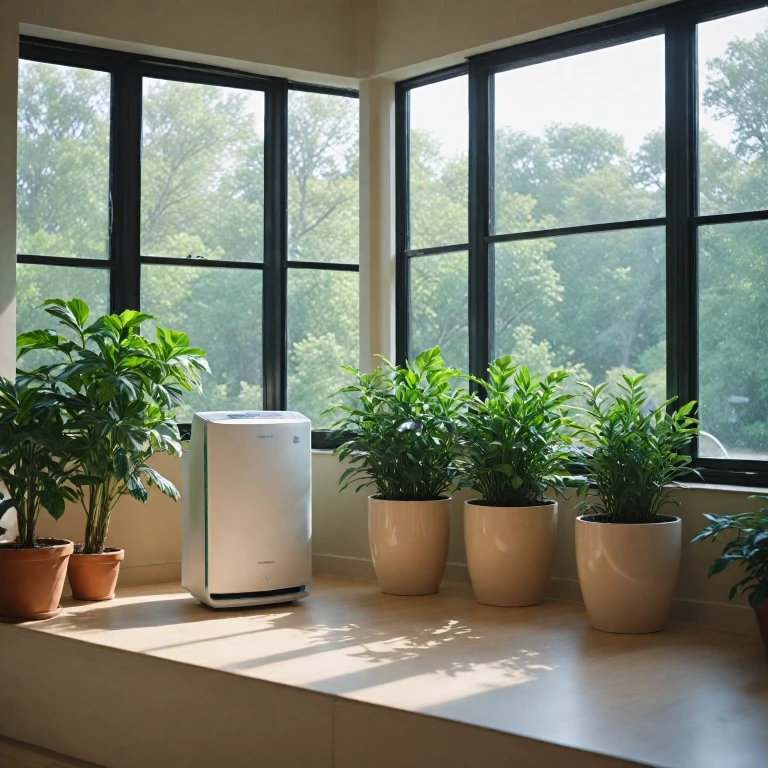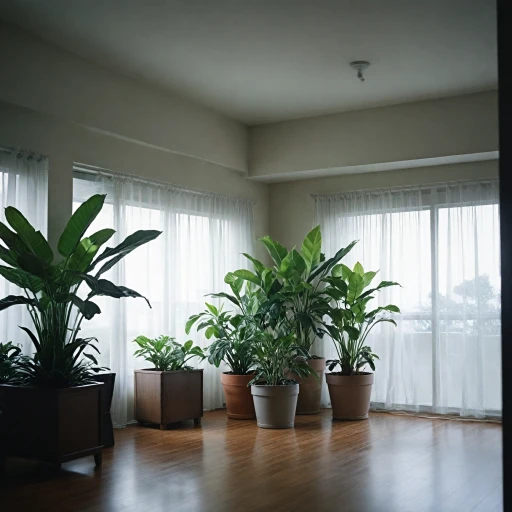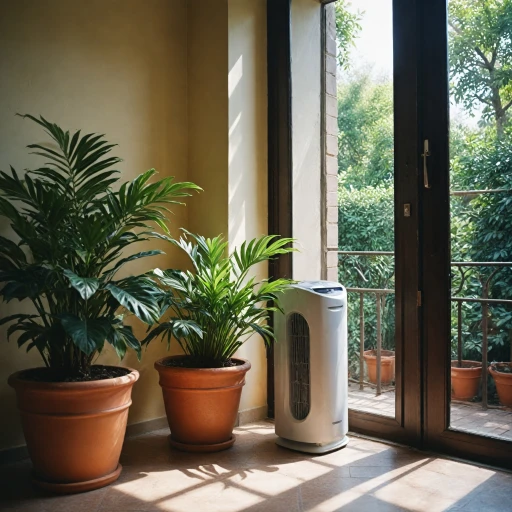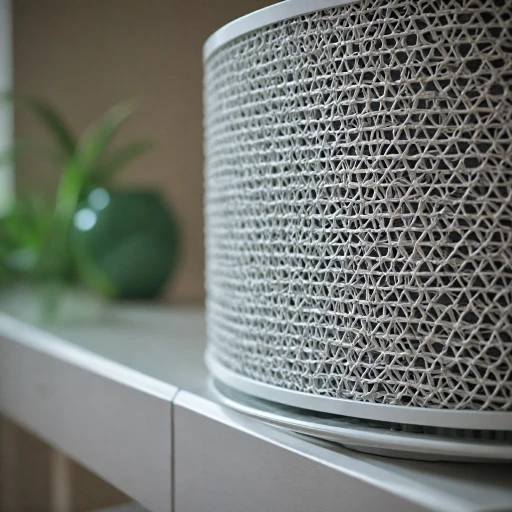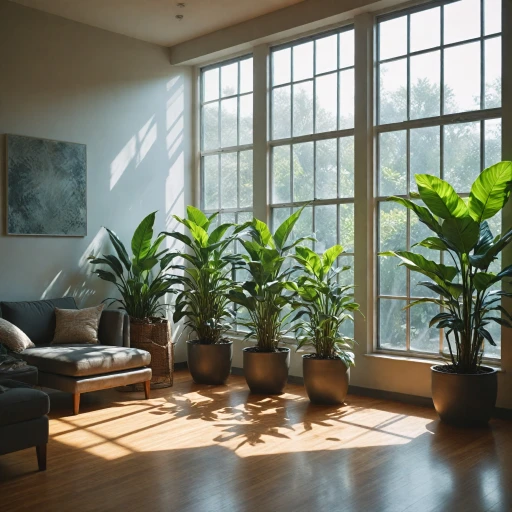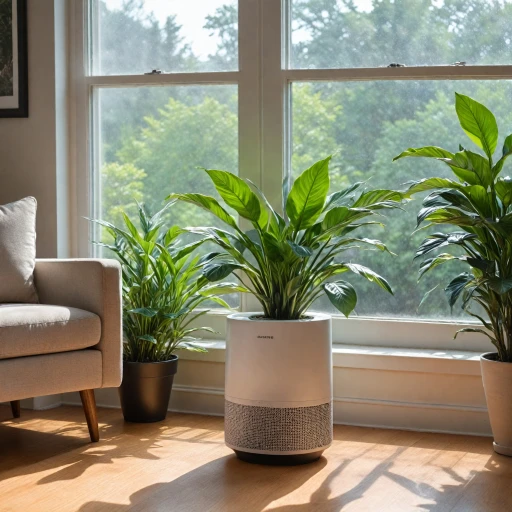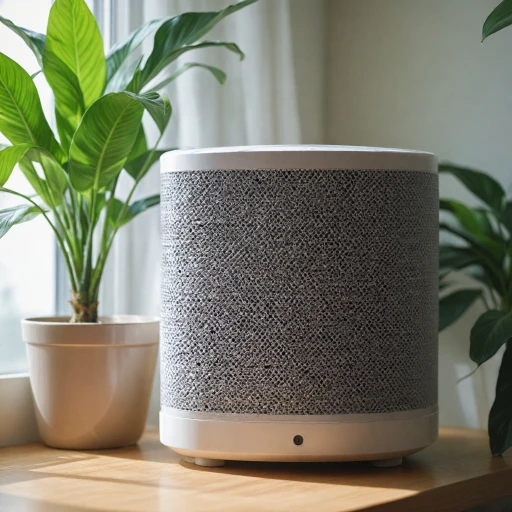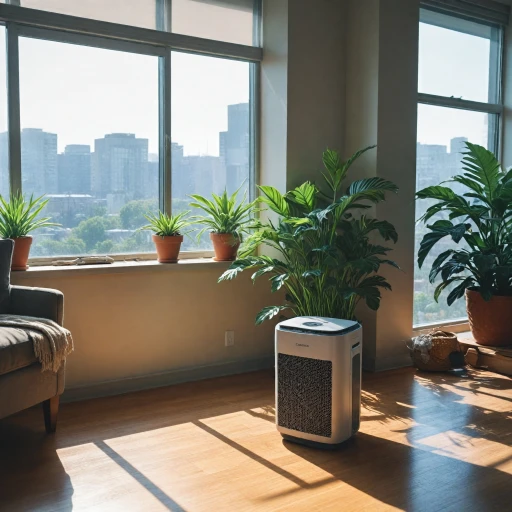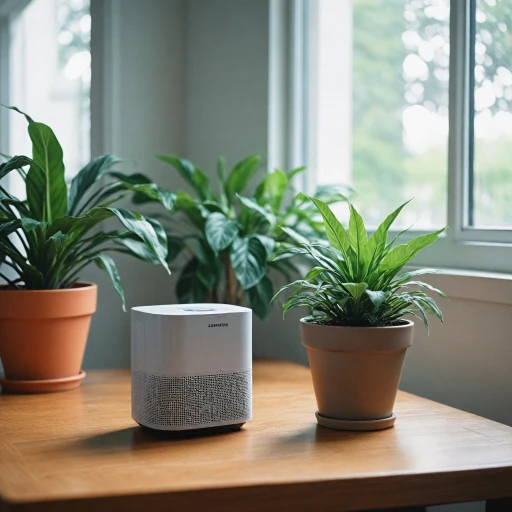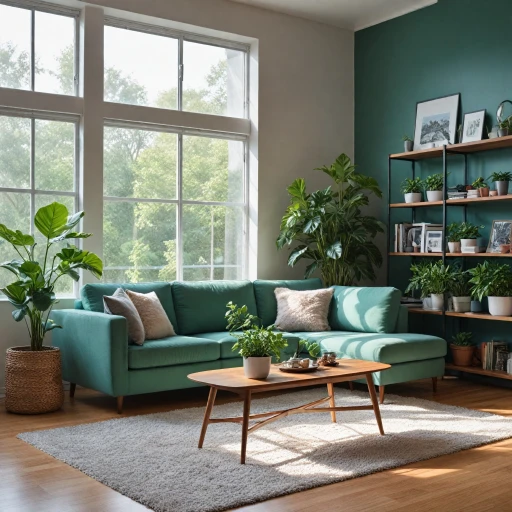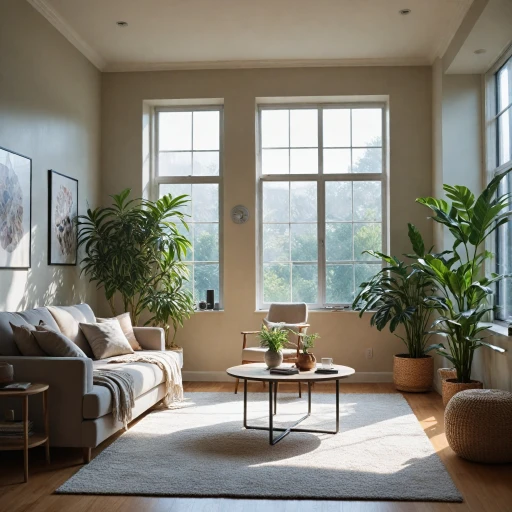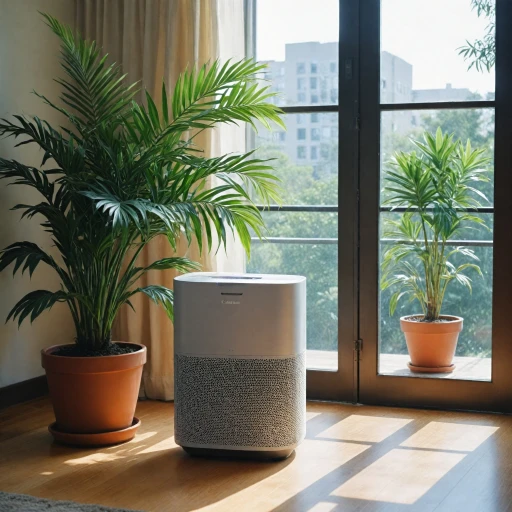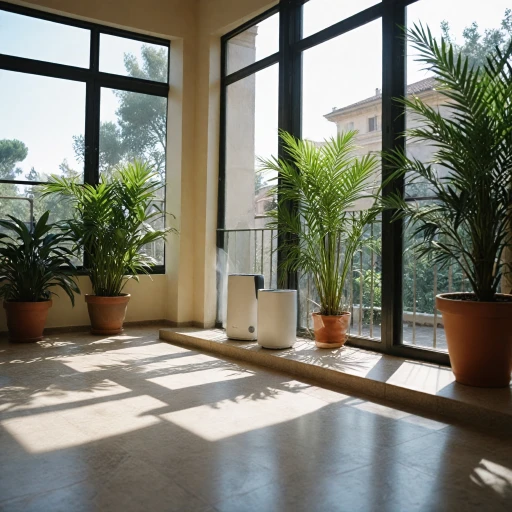
How Bioair Cleaners Work
The Mechanics of Bioair Cleaners
Bioair cleaners are a sophisticated fusion of technology aimed at dramatically improving air quality in various environments. At the heart of these units lies a multi-layered filtration system designed to effectively capture a wide array of airborne particles. To begin with, the air purifier unit typically engages a pre-filter to trap larger particles such as dust and pet hair, which is pivotal in prolonging the life of subsequent filters. Once these larger particles are captured, the system moves the air through a high-efficiency particulate air (HEPA) filter, renowned for its capacity to catch at least 99.97% of particles as small as 0.3 microns. This includes pollen, smoke, and other minute pollutants, ensuring the room is filled with clean and breathable air. What distinguishes the Bioair product from others in the market is the integration of true HEPA filters, compared to the lesser efficient hepa type or permanent hepa alternatives. Bioair’s dedication to providing true hepa filtration guarantees optimal air purification, setting a benchmark for products like the Bionaire true air purifiers. Another crucial feature within Bioair systems, often found in models like the Bioair Max, is the negative pressure technology. This aspect is instrumental in maintaining proper airflow, working alongside the filtration system to expel any trapped contaminants and ensuring that the air circulating back into the room remains pure and pollutant-free. For those choosing the right Bioair cleaner, recognizing these advanced mechanics could make a remarkable difference in solving specific air quality issues, especially in settings demanding consistent air purity like in areas serviced by Kwikool systems. To explore more on how these mechanics align with various user needs, you might want to check out an in-depth analysis on different air purifier systems. Understanding these benefits helps consumers make more informed decisions, selecting products that not only fit personal health needs but also come with advantageous features like free shipping and convenient maintenance kits.The Importance of HEPA Filters
The Role of HEPA Filters in Air Purification
HEPA filters are at the core of many air purifiers, including Bioair units. These filters play a crucial role in ensuring high air quality by trapping particles that are as small as 0.3 microns. Essentially, a true HEPA filter can capture a vast majority of airborne particles such as dust, pollen, mold spores, and pet dander. This feature is fundamental in providing cleaner and healthier air in your living space.
Among various products, HEPA air purifiers like the Bionaire True HEPA air cleaner stand out for their effectiveness. When you look for an air purifier, the presence of a true HEPA filter can often distinguish high-performing products like the Bioair Max from less effective alternatives. As a consumer, understanding the importance of a permanent HEPA filter is pivotal, especially if you're considering an investment for long-term air quality improvement.
- Efficiency: HEPA filters in purifiers are designed to remove the fine particles that can aggravate allergies and asthma, making them indispensable for maintaining a clean air environment.
- Performance: Products equipped with true HEPA systems, like the KBX Bioair, ensure superior purification due to their advanced filter capabilities.
- Versatility: Whether you're dealing with common household dust or negative air pressure issues, these filters adapt well to various challenges, enhancing the purifier's ability to improve air quality.
When selecting the best purifying unit for your home, it's essential to consider the specifications and features of the HEPA filter. For instance, check if the product offers free shipping, has an easy-to-maintain filter kit, and fits the desired room size effectively. Informed decisions will not only help you manage clean air more efficiently but also ensure longevity and effective maintenance of your air cleaner.
For a deeper understanding of indoor air purification benefits, take a look at our detailed guide on purification technologies. This resource can offer you insights into why HEPA filters are a critical component of effective air purifiers.
Ionizer Technology Explained
Unpacking Ionizer Features in Air Purifiers
The technology behind air purifiers has evolved significantly, and one prominent feature is ionizer technology. Ionizers work alongside traditional filtration systems, such as HEPA filters, to enhance the overall efficiency of air cleaning units like the Bioair system. The concept may sound technical, but its operation is quite straightforward. Ionizers emit negative ions into the room. These ions attach themselves to airborne particles, like dust, pollen, and other pollutants, in the air. The particles then become heavier and fall to the ground or are more easily captured by the air filter. This results in cleaner air and a reduction of allergies and respiratory issues. This negative ion technology complements the efficiency of HEPA filters, which are crucial components in devices like the Bioair product range. Many units, such as Bionaire and Kwikool models, integrate both HEPA and ionizer elements to ensure thorough air purification and delivery of clean air. By using ionizers, these purifiers manage to handle smaller particles that might escape even a true HEPA filter, such as those labeled as "permanent hepa" or "hepa type." When equipped properly, these features work in tandem to maintain excellent air quality and promote a healthier living environment. For a comprehensive understanding of how ionizers and other technologies collaborate, our detailed guide on the benefits of a portable air scrubber offers further insights.Health Benefits of Using Bioair Cleaners
Enhancing Indoor Air Quality with Bioair Cleaners
Bioair cleaners offer various health benefits by effectively improving indoor air quality. These units are equipped with advanced features like HEPA filters and ionizer technology that work together to create a healthier breathing environment.- Reduction of Allergens: Bioair cleaners, especially those with a true HEPA filter, are proficient in capturing up to 99.97% of airborne particles, including dust, pollen, and pet dander. This high efficiency level significantly reduces allergens in the room, making it an essential product for allergy sufferers.
- Minimization of Harmful Particulates: True HEPA filters in Bioair products trap microscopic pollutants that can compromise respiratory health. Utilizing a permanent HEPA filter system, these units maintain optimal air quality by continually filtering pollutants without the need for frequent replacements.
- Decreased Respiratory Irritation: The negative air ionizer feature of Bioair cleaners further enhances their ability to purify air by neutralizing particles that may cause respiratory irritation. This creates a cleaner and fresher environment for inhabitants.
- Odor Elimination: With advanced technologies integrated into their systems, Bioair cleaners effectively reduce unwanted odors, including those from cooking, smoke, or pets, thereby improving overall comfort in living spaces.
Choosing the Right Bioair Cleaner for Your Home
Finding the Best Fit for Your Space
Choosing the right Bioair Cleaner for your home or office involves looking at various essential factors to ensure maximum air purification. Here are some key considerations to ponder:
- Room Size: The Bioair unit should match the size of the space where you intend to place it. Consider products like the Bioair Max, which is suitable for larger rooms owing to its powerful performance, or opt for a smaller purifier air unit for more confined areas.
- HEPA Filter Type: Not all HEPA filters offer the same level of filtration. While some models feature a true HEPA air filter that captures 99.97% of particulates down to 0.3 microns, others may use HEPA-type filters with a slightly lower efficiency. The Bionaire BAP and similar models with permanent HEPA options are worth exploring.
- Ionizer Features: The inclusion of ionizer technology in your air cleaner can offer additional benefits by reducing allergens and airborne particles through negative ions. Check for systems that provide this feature to complement the HEPA filter.
- Air Quality Needs: Evaluate your specific needs, such as tackling negative pressure environments or ensuring negative air systems, which can influence the choice of your purifier unit. Some models, like the Kwikool series, are designed for industrial or more demanding settings.
- Maintenance and Care: Regular maintenance of your chosen air purifier is crucial for its longevity and performance. Look for models that offer easy filter replacement kits or permanent filters that require less frequent attention. Our section on maintenance covers more about ensuring it stays in optimal condition.
- Additional Features: Consider other attributes that might be important, like a filter change light, quiet operation, or free shipping options on certain purchases. These can add convenience and value to your choice.
By carefully considering these aspects, you can select a Bioair Cleaner that will optimally improve the air quality of your living or working space, ensuring a healthier environment.
Maintenance and Care Tips
Ensuring Longevity and Efficiency
Keeping your Bioair Cleaner in top shape is crucial for maintaining optimal air quality in your living space. Regular care and maintenance not only enhance the performance of the unit but also extend its life, providing cleaner air for a longer time. Here's a straightforward list of steps to help you take care of your air purifier effectively:- Replace HEPA Filters: True HEPA filters are designed to trap the smallest of particles. Depending on the specific Bioair model you have, the filters might need replacement every 6 to 12 months. However, some units come with a permanent HEPA filter that requires regular cleaning instead of replacement.
- Clean the Air Purifier Regularly: Dust and dirt can accumulate on the exterior and in the vents of your Bioair system. A gentle wipe with a damp cloth can keep the unit clean and ensure that your cleaner is functioning efficiently.
- Use the Pre-filter Effectively: Some Bioair models, like the Bionaire true series, come equipped with a pre-filter to catch larger particles, extending the life of the main HEPA air filter. These should be checked and cleaned regularly to maintain good airflow.
- Mind the Ionizer Feature: If your Bioair Cleaner includes an ionizer, ensure that it is functioning properly. While the ionizer contributes to improving air quality, its performance can be enhanced with regular maintenance and cleaning, as well as ensuring negative air pressure settings are appropriately managed.
- Understand the Product Code: Each air purifier has a specific product code which can usually be found on the unit. It’s important for ordering replacement parts and accessing support, so keep this information handy.
- Check for Manufacturer Guidelines: Some features, like the Kwikool kit or Bioair Max, may have specific maintenance requirements. Reviewing the manufacturer's manual can offer insights tailored to your specific model.

